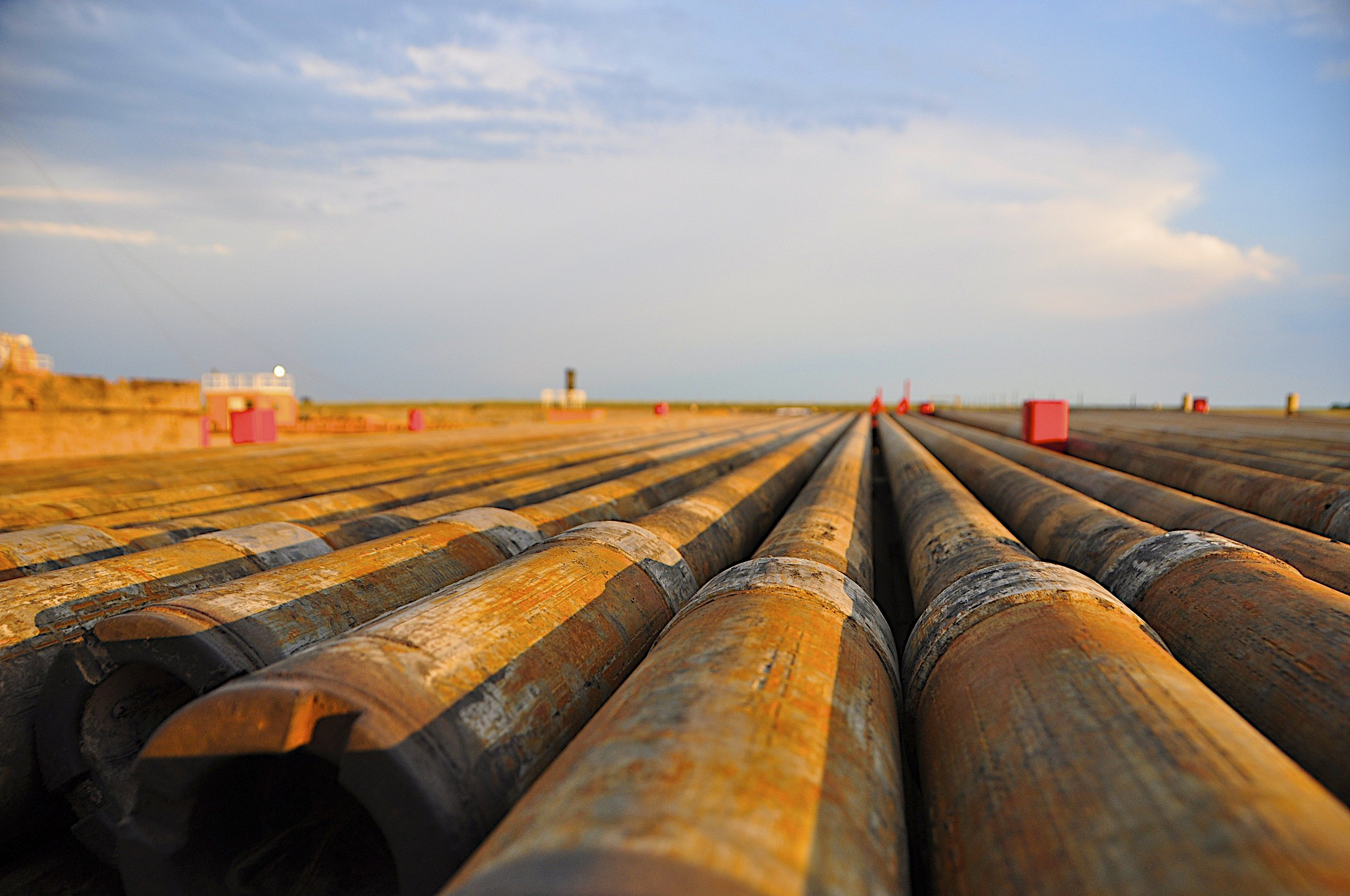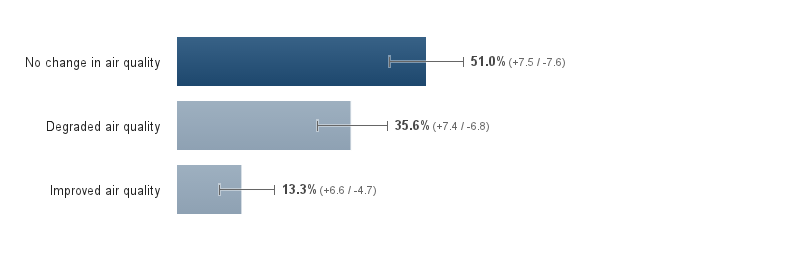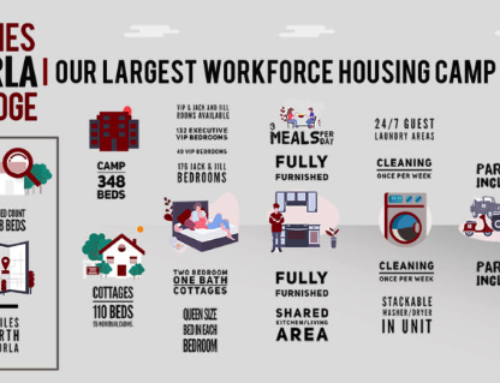You’d be hard pressed to find a more hotly debated or thoroughly discussed issue than shale oil. Activists say it’s ruining the environment, loyalists say it’s making the U.S. the new Saudi Arabia, and a whole lot of people in between know little to nothing about it. In an effort to delve deeper into the fundamental facts of the industry, we talked to industry expert John Graves, author of Fracking: America’s Alternative Energy Revolution, and asked him to tell us about two aspects of shale oil least known and understood by the public.
 Photo by Tim Whitlow
Photo by Tim Whitlow
Next, after discussing two of the industry’s least known facts, we conducted two surveys of 200 people – one for each issue – to gauge awareness.
What we found isn’t just interesting; it’s remarkable.
Fact #1: Shale has improved U.S. air quality
As the prevalence of shale drilling has grown, activists have criticized the industry for its environmental impact. While it’s true that localized contamination of groundwater has been a concern in areas where shale wells are especially dense, shale has had a positive impact, overall, on the environment of the United States.
According to data collected by the EPA, there has been a 450 million ton reduction in carbon dioxide (C02) emissions between 2007 and 2013. There are three main causes of this reduction:
1. The Great Recession
2. Increase in CAFE standards
3. The “Cash for clunkers” program
4. Substitution of gas for coal in electricity production
The first three of these catalysts equate to 35% of the total reduction between 2007 and 2013. The other 65% is directly related to the substitution of gas for coal in electricity production.
“The single most important driver in reducing carbon dioxide emissions in the U.S. has been the hydraulic fracturing of natural gas,” says Graves.
“Natural gas has replaced coal in the production of electricity, or significantly reduced its use,” Graves says. “Natural gas, 10 years ago, was producing 2% of electricity in the U.S. – now it produces 31%.”
How does more drilling mean cleaner air?
When burned to produce electricity, natural gas produces roughly half the emissions of coal. In fact, it’s the cleanest to burn of all major fossil fuels and their derivatives – cleaner than diesel, gasoline, propane, and coal.
Who knew?
According to our survey data, very few people are aware of shale’s impact on U.S. air quality. In fact, only 13% of our respondents indicated knowledge of how shale has improved air quality.
Question: In which of the following ways is hydraulic fracturing (“fracking”) for shale oil responsible for impacting U.S. air quality?

Fact #2: Shale is the #1 source of job growth since the recession
According to U.S. jobs data from the Bureau of Labor Statistics, 2.3 million jobs have been created since the beginning of the recession in 2007. What’s shocking is how that number looks when juxtaposed with data from a IHS study from 2012, which cites 1.7 million new jobs in the energy industry during the same time frame.
“That is virtually all the new job creation since the recession,” says Graves.
Ample opportunity for returning veterans
Shale is responsible not only for the largest movement of overall job growth in the country but also for the mass employment of discharged service members. Given the requirements of joining the shale revolution workforce, it’s no surprise that exiting military members fit in so well.
“The traits that the military imparts on the men and women — loyalty, courage, safety, commitment, leadership, teamwork — are all valued by employers in this industry,” says Dave Pistner, director of energy initiatives at the Pennsylvania College of Technology in Williamsport in a report by the Pittsburgh Post-Gazette. “It’s a natural fit for our troops leaving active service.”
Who knew?
In survey number two, we gauged awareness of the shale revolution’s role in job creation. Nesting the energy industry amongst three of the United States’ other biggest industries – retail and customer service, manufacturing, and healthcare – we gave respondents a total of four industries and asked them to choose the one they believe to have created the most jobs since the recession.
Surprisingly, the energy industry was ranked behind both healthcare and retail and customer service.

Your thoughts
What aspects of the industry do you believe are least known or understood by the general public? What misnomers would you like to see clarified and which myths debunked? Start the conversation and send us your ideas by getting in touch on Twitter or Facebook today.





